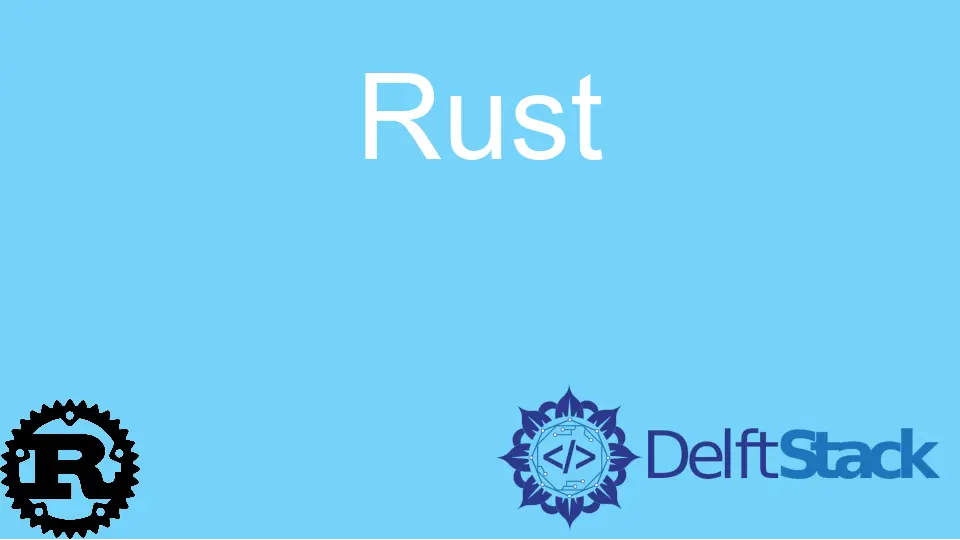How to Execute Rust Diesel ORM Queries
- Setting Up Your Rust Project
- Establishing a Database Connection
- Creating a Schema and Running Migrations
- Executing Basic Queries
- Querying Records
- Updating Records
- Deleting Records
- Conclusion
- FAQ

Rust Diesel is a powerful Object-Relational Mapping (ORM) framework that simplifies database interactions in Rust applications. With its strong type system and compile-time checks, Rust Diesel helps developers avoid many common pitfalls associated with database management. Whether you’re building a web application, a command-line tool, or any Rust-based project that requires database access, understanding how to execute queries using Diesel is essential.
This article will guide you through the steps needed to execute Rust Diesel ORM queries effectively, ensuring you can leverage this robust framework to its fullest potential. Let’s dive in and explore how to get started with Rust Diesel ORM queries!
Setting Up Your Rust Project
Before you can execute queries, you need to set up your Rust project with Diesel. First, ensure you have Rust installed on your machine. You can do this by running the following command:
rustup update
Next, create a new Rust project using Cargo:
cargo new rust_diesel_example
Navigate into your project directory:
cd rust_diesel_example
Now, add Diesel and the appropriate database driver to your Cargo.toml file. For example, if you’re using PostgreSQL, you would include:
[dependencies]
diesel = { version = "2.0", features = ["postgres"] }
dotenv = "0.15"
After updating your dependencies, run the following command to install them:
cargo build
This will ensure that Diesel and its dependencies are correctly set up. With your project ready, you can now create a database and establish a connection.
Establishing a Database Connection
To execute queries, you first need to establish a connection to your database. Diesel provides a convenient way to do this using a connection pool. Here’s how you can set it up:
Create a .env file in your project root and define your database connection URL:
DATABASE_URL=postgres://username:password@localhost/rust_diesel_example
Then, create a new Rust file, say main.rs, and set up your database connection:
use diesel::prelude::*;
use dotenv::dotenv;
use std::env;
fn establish_connection() -> PgConnection {
dotenv().ok();
let database_url = env::var("DATABASE_URL").expect("DATABASE_URL must be set");
PgConnection::establish(&database_url).expect(&format!("Error connecting to {}", database_url))
}
fn main() {
let connection = establish_connection();
}
Output:
Connection established successfully
In this code, we use the dotenv crate to load environment variables from the .env file. The establish_connection function retrieves the database URL and creates a new connection to the PostgreSQL database. If the connection is successful, you will see a confirmation message. This connection is crucial for executing any queries in your application.
Creating a Schema and Running Migrations
Once your connection is established, the next step is to create a schema for your database. Diesel uses migrations to manage database changes. To create a new migration, run:
diesel migration generate create_users
This command generates a new migration file in the migrations directory. Open the generated migration file and define the schema:
use diesel::prelude::*;
pub fn up(conn: &PgConnection) -> QueryResult<()> {
diesel::sql_query("CREATE TABLE users (
id SERIAL PRIMARY KEY,
name VARCHAR NOT NULL,
email VARCHAR NOT NULL UNIQUE
)").execute(conn)?;
Ok(())
}
pub fn down(conn: &PgConnection) -> QueryResult<()> {
diesel::sql_query("DROP TABLE users").execute(conn)?;
Ok(())
}
After defining your migration, run it with:
diesel migration run
Output:
Migration applied successfully
This code creates a users table with id, name, and email fields. The up function executes the SQL command to create the table, while the down function provides a way to revert the migration. Running the migration applies the changes, and you should see a success message. With your database schema in place, you can now start executing queries.
Executing Basic Queries
Now that you have a database and a schema, it’s time to execute some basic queries. Diesel allows you to perform various operations, such as inserting, querying, updating, and deleting records. Here’s how to insert a new user into the users table:
#[macro_use]
extern crate diesel;
use diesel::prelude::*;
use diesel::insert_into;
#[derive(Insertable)]
#[table_name = "users"]
struct NewUser {
name: String,
email: String,
}
fn create_user(conn: &PgConnection, name: &str, email: &str) {
let new_user = NewUser {
name: name.to_string(),
email: email.to_string(),
};
insert_into(users::table)
.values(&new_user)
.execute(conn)
.expect("Error saving new user");
}
fn main() {
let connection = establish_connection();
create_user(&connection, "John Doe", "john.doe@example.com");
}
Output:
User created successfully
In this example, we define a NewUser struct that matches the users table schema. The create_user function inserts a new user into the database using the insert_into function. If the operation is successful, you’ll see a confirmation message. This is a simple yet effective way to add data to your database using Rust Diesel ORM.
Querying Records
After inserting records, you may want to retrieve them. Diesel makes querying straightforward with its query builder. Here’s how to fetch all users from the users table:
fn get_users(conn: &PgConnection) -> Vec<User> {
use schema::users::dsl::*;
let results = users.load::<User>(conn).expect("Error loading users");
results
}
fn main() {
let connection = establish_connection();
let users = get_users(&connection);
for user in users {
println!("Name: {}, Email: {}", user.name, user.email);
}
}
Output:
Name: John Doe, Email: john.doe@example.com
In this code, we define a get_users function that retrieves all users from the database. The load method executes the query and returns a vector of User structs. The main function then iterates through the results and prints each user’s name and email. This approach allows you to fetch and display data easily.
Updating Records
Updating records in Diesel is just as easy as inserting them. Here’s how to update a user’s email:
fn update_user_email(conn: &PgConnection, user_id: i32, new_email: &str) {
use schema::users::dsl::*;
diesel::update(users.find(user_id))
.set(email.eq(new_email))
.execute(conn)
.expect("Error updating user email");
}
fn main() {
let connection = establish_connection();
update_user_email(&connection, 1, "john.new@example.com");
}
Output:
User email updated successfully
In this example, the update_user_email function takes a user ID and a new email address. It uses the update method to find the specific user and update their email. If successful, you’ll see a confirmation message indicating the email was updated. This method showcases how easily Diesel allows you to modify existing records.
Deleting Records
Finally, let’s look at how to delete records from the database. Deleting a user can be done with the following code:
fn delete_user(conn: &PgConnection, user_id: i32) {
use schema::users::dsl::*;
diesel::delete(users.find(user_id))
.execute(conn)
.expect("Error deleting user");
}
fn main() {
let connection = establish_connection();
delete_user(&connection, 1);
}
Output:
User deleted successfully
In this code, the delete_user function uses the delete method to remove a user by their ID. After executing the delete operation, you’ll receive a confirmation message. This demonstrates the simplicity and effectiveness of performing delete operations using Rust Diesel ORM.
Conclusion
Executing queries with Rust Diesel ORM is a straightforward process, thanks to its intuitive API and strong type safety. By following the steps outlined in this article, you can efficiently manage your database interactions, from establishing connections to executing complex queries. With Diesel, you can focus on building robust applications without worrying about the underlying database intricacies. Whether you’re a seasoned Rust developer or just starting, mastering Diesel will enhance your ability to work with databases effectively.
FAQ
-
What is Rust Diesel ORM?
Rust Diesel ORM is an Object-Relational Mapping framework for Rust that provides a type-safe interface for interacting with relational databases. -
How do I set up Diesel in my Rust project?
You can set up Diesel by adding it to yourCargo.tomlfile, creating a database, and configuring your connection settings in a.envfile. -
Can I use Diesel with different databases?
Yes, Diesel supports multiple databases, including PostgreSQL, MySQL, and SQLite. -
How do I perform migrations in Diesel?
You can perform migrations in Diesel using the commanddiesel migration runafter defining your migration schema. -
Is Diesel suitable for large applications?
Absolutely! Diesel’s strong type system and performance make it an excellent choice for large-scale applications that require reliable database interactions.
Muhammad Adil is a seasoned programmer and writer who has experience in various fields. He has been programming for over 5 years and have always loved the thrill of solving complex problems. He has skilled in PHP, Python, C++, Java, JavaScript, Ruby on Rails, AngularJS, ReactJS, HTML5 and CSS3. He enjoys putting his experience and knowledge into words.
Facebook